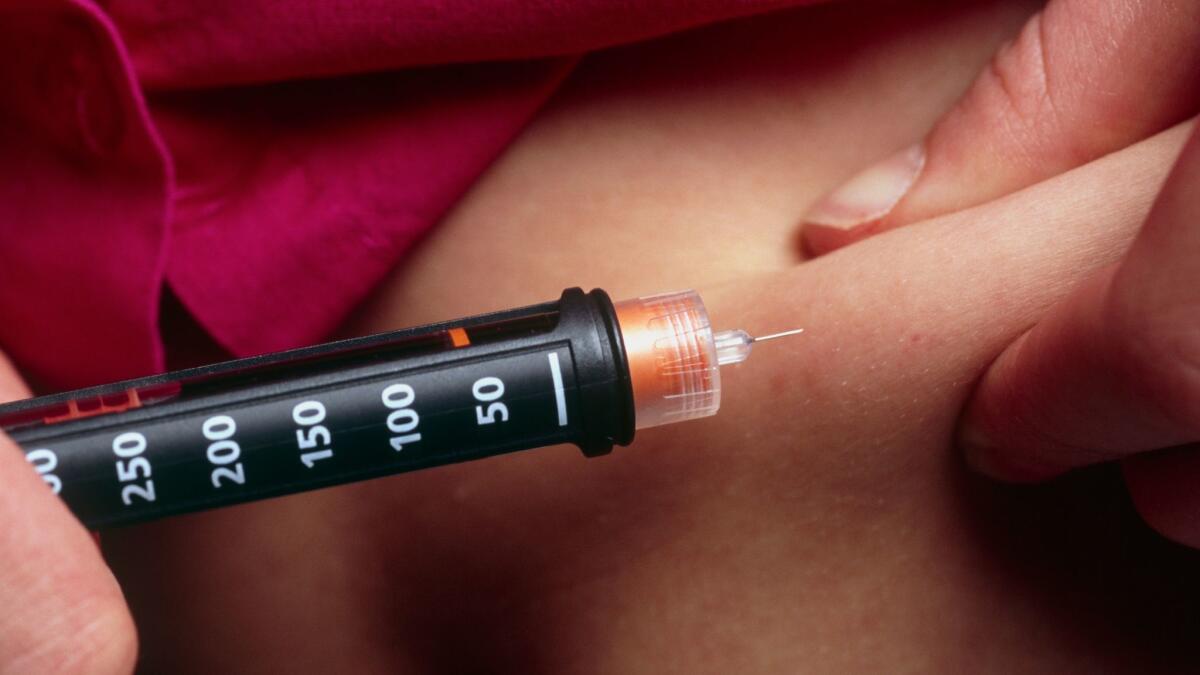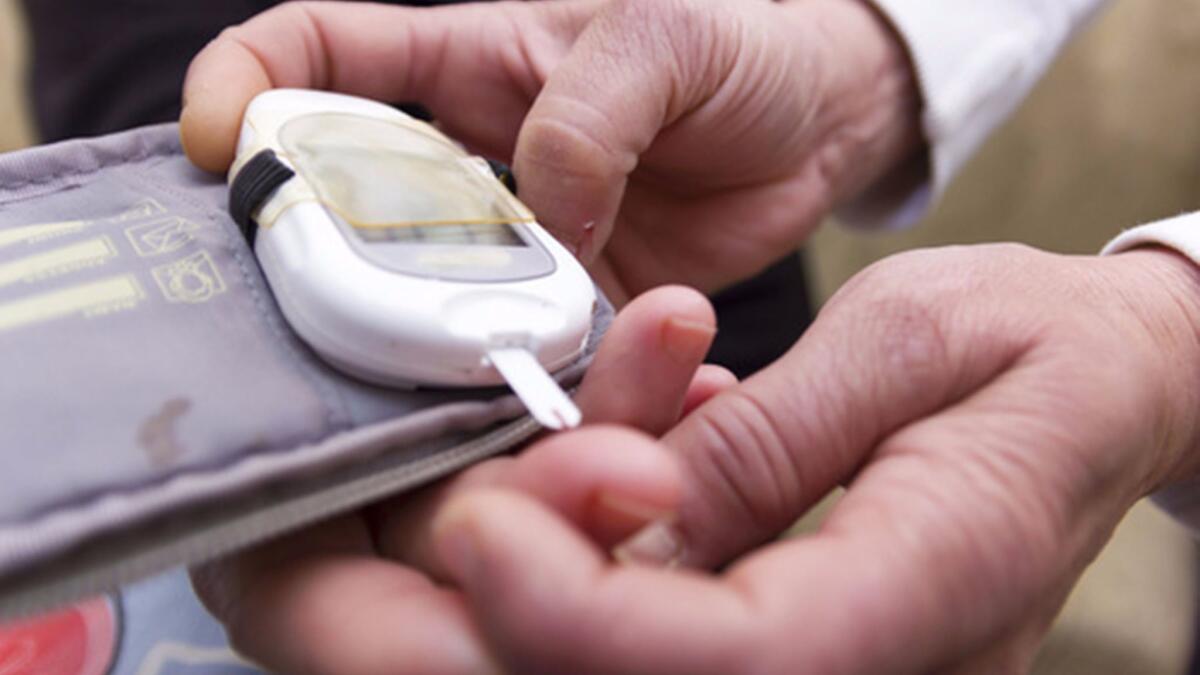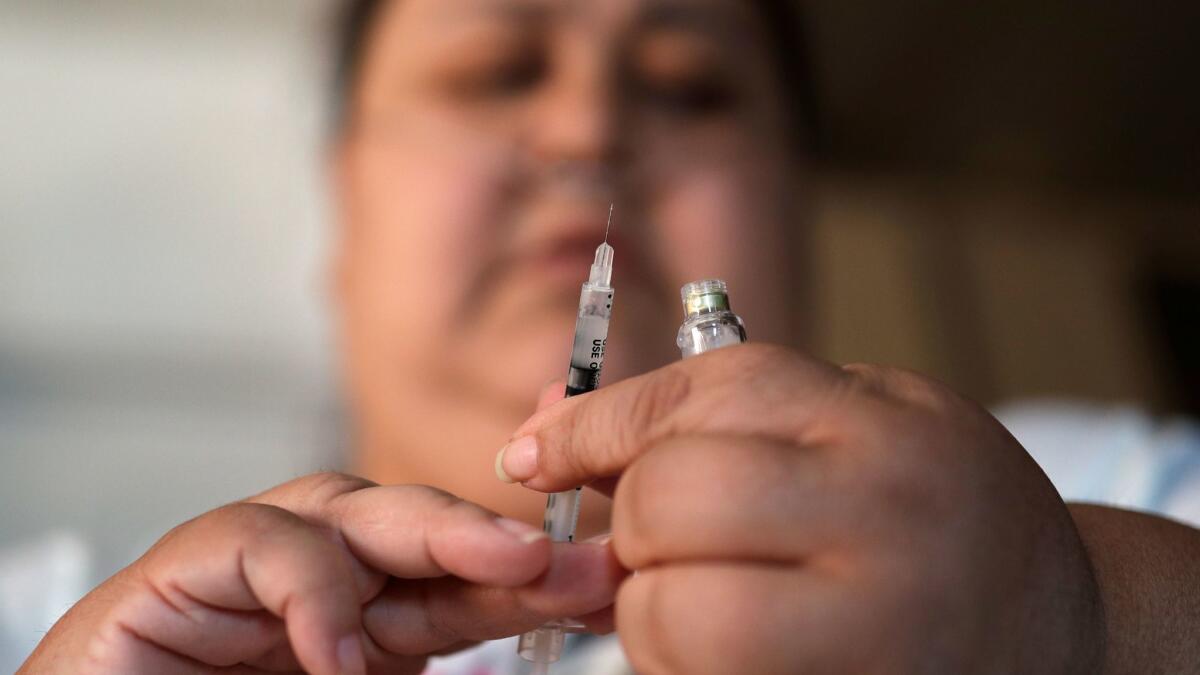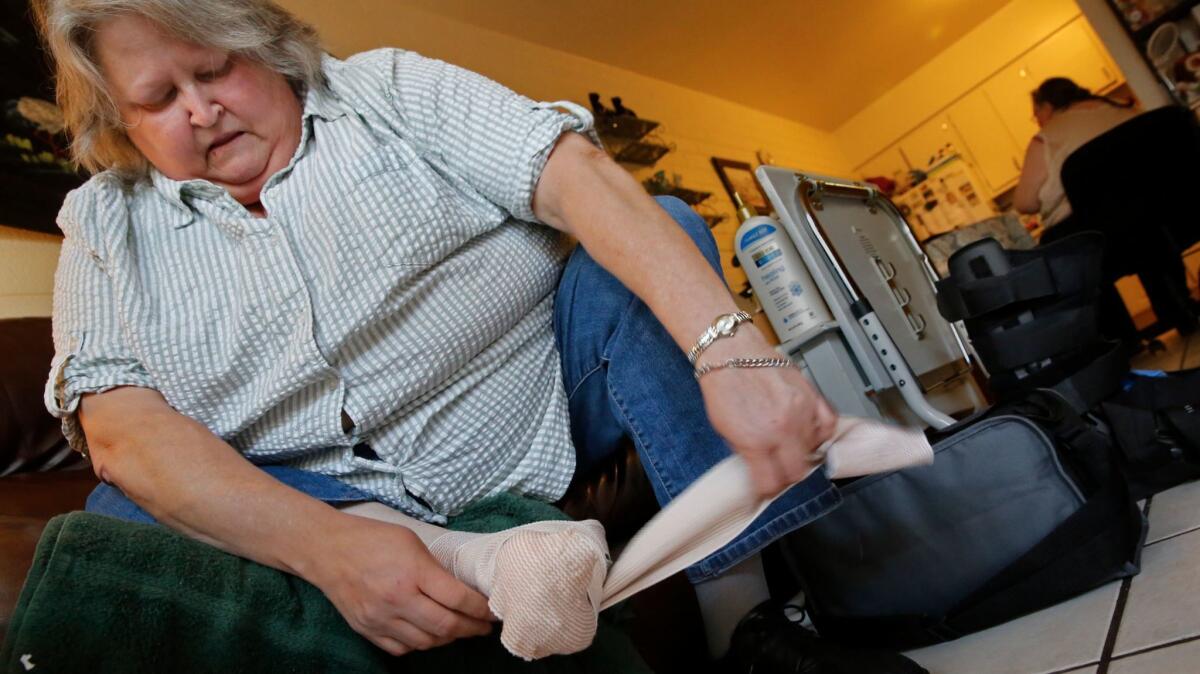Half of Americans have diabetes or a high risk for it — and many of them are unaware

- Share via
Baseball, hot dogs, apple pie and …
That’s right. The metabolic condition is about as American as you can get, according to a new national report card on diabetes released Tuesday by the
The report shows that nearly half of Americans have diabetes or prediabetes, which puts them at high risk for the condition. A good number of these folks haven’t been diagnosed and don’t even realize their predicament.
People with diabetes have too much sugar in their blood. If the disease isn’t controlled, they can wind up with heart disease, nerve damage, kidney problems, eye damage and other serious health problems.
The new report combines data from the CDC, the Agency for Healthcare Research and Quality, the Indian Health Service and the Census Bureau. Here’s a numerical look at what they reveal about diabetes in America.
30.3 million
The number of people in the U.S. who had diabetes in 2015.
9.4%
The percentage of the U.S. population that has diabetes. That’s nearly 1 in 10.
1.5 million
The number of newly diagnosed cases of diabetes among U.S. adults in 2015. That works out to 6.7 new cases per 1,000 people.
24%
The percentage of Americans with diabetes who don’t even know they have it. That’s 7.2 million people.
7
Where diabetes ranked on the list of leading causes of death in the U.S. in 2015. Diabetes was listed as a cause of death on 252,806 death certificates that year, including 79,535 that identified diabetes as the primary cause of death.

2
There were two kinds of diabetes included in the study. Type 1 diabetes (formerly known as juvenile diabetes) occurs when the immune system prevents the body from making insulin, and type 2 diabetes (formerly known as adult-onset diabetes) occurs when the body can’t make enough insulin or can’t use it well. About 95% of all diabetes cases are type 2 diabetes. (A third type is gestational diabetes, which affects some women while they are pregnant but usually resolves itself after they give birth).
84.1 million
The number of U.S. adults who have prediabetes, a condition characterized by elevated blood sugar that puts people at high risk of developing type 2 diabetes. That works out to 34% of American adults with prediabetes.
132,000
The number of diabetes cases among children and teens under the age of 18. This represents 0.18% of American youth.
17,900
The number of children and teens under the age of 20 who are diagnosed with type 1 diabetes each year, based on data from 2011 to 2012. An additional 5,300 kids between the ages of 10 and 19 are diagnosed with type 2 diabetes each year.
51%
The proportion of adult diabetes cases that occur in men.

15.1%
The prevalence of diagnosed cases of diabetes among Native Americans, including Alaska Natives. This is higher than any other racial or ethnic group in the U.S. Next in line were African Americans (12.7%), Latinos (12.1%), Asian Americans (8%) and non-Hispanic whites (7.4%).
61%
The percentage of U.S. adults diagnosed with diabetes who are obese, according to their body mass index. An additional 26% are overweight.
41%
The percentage of U.S. adults diagnosed with diabetes who got less than 10 minutes of “moderate or vigorous” exercise at work, during their leisure time and as a means of transportation.
16%
The percentage of U.S. adults diagnosed with diabetes who are smokers; 35% used to smoke but quit.
74%
The percentage of U.S. adults with diagnosed cases of diabetes who have high blood pressure.
7.2 million
The number of American adults with diabetes who required some kind of hospital treatment and were discharged in 2014.

108,000
The number of adult diabetes patients who required a lower-extremity amputation in 2014. That works out to five cases per 1,000 adults with diabetes.
52,159
The number of American adults whose diabetes caused them to develop kidney failure in 2014.
$254 billion
The total cost of caring for Americans with diabetes in 2012. It averages out to $13,700 per diabetes patient, which is 2.3 times higher than for people who don’t have diabetes.
Follow me on Twitter @LATkarenkaplan and "like" Los Angeles Times Science & Health on Facebook.
MORE IN SCIENCE
As doctored photos flood the Internet, human vision struggles to keep up
Worried about dementia? Hearing and language problems could be forerunners of cognitive decline




